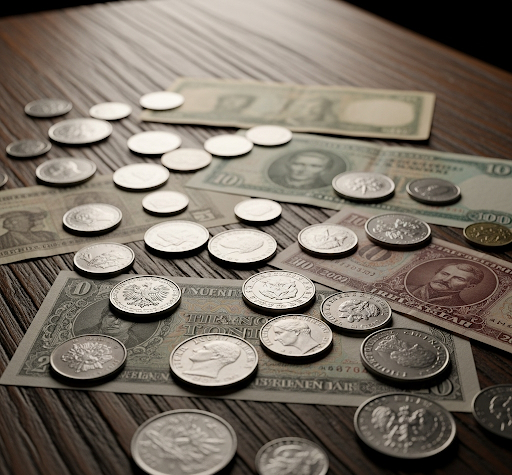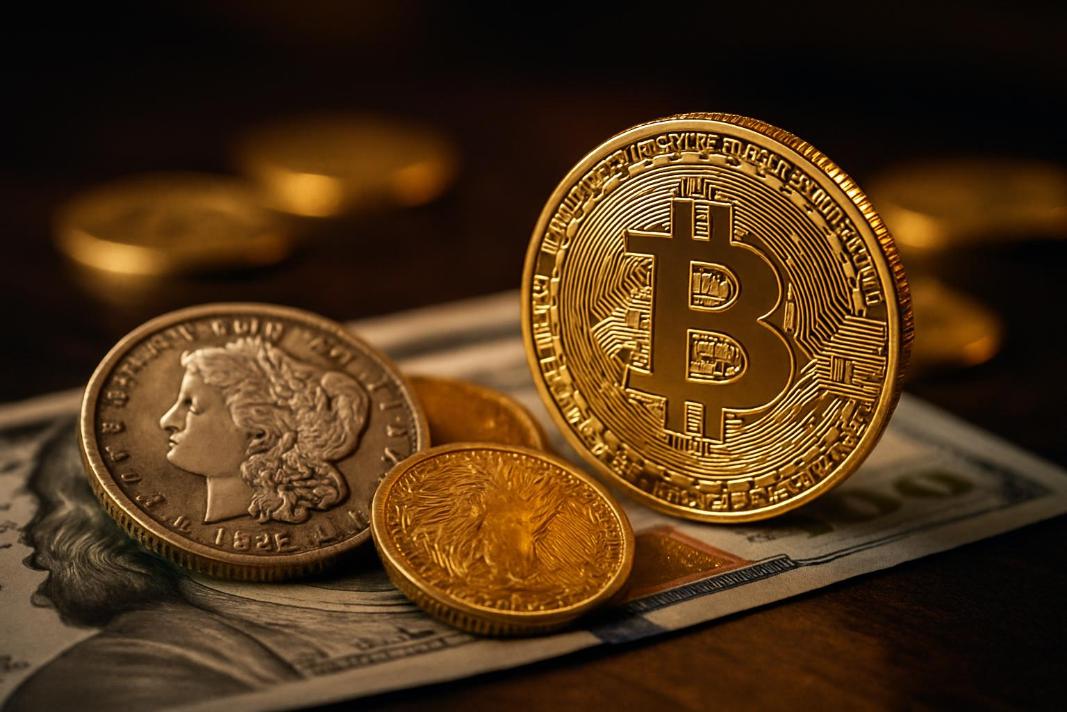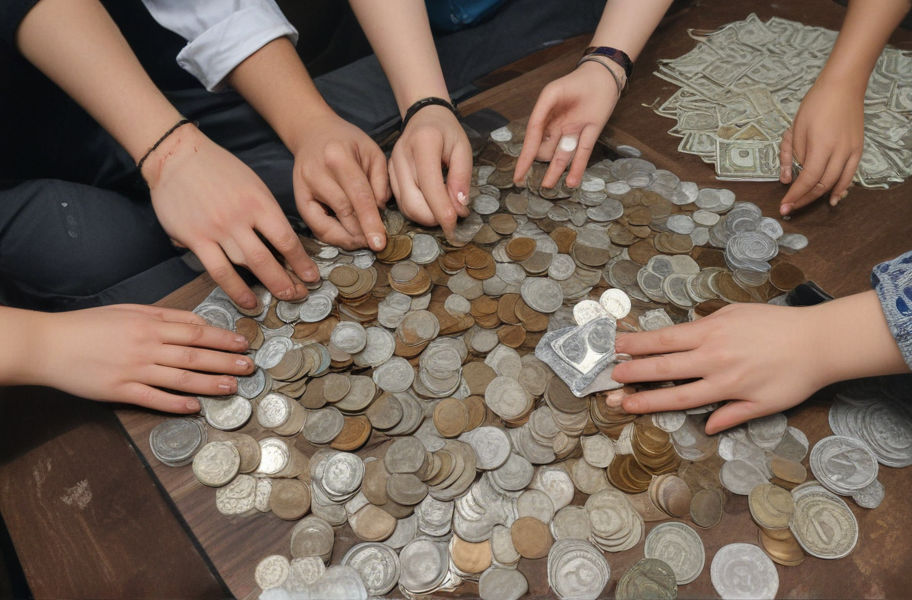Collecting rare items has always been linked to personal development and prestige. A social growth upgrade represents the idea of elevating influence and recognition by engaging in pursuits that signal depth and authenticity. It is not only about status but also about creating meaningful connections with communities that appreciate history and rarity. This concept naturally extends into areas where knowledge, culture, and value intertwine. One of the most captivating examples of this lies in the world of acquiring old coins and notes, where passion and purpose come together in unique ways.
Fascination with Rare Currency
Buying old coins and notes is not just a pastime but a journey into history itself. Each piece carries stories from its era, often reflecting political, cultural, or economic shifts of the time. This makes collecting a blend of education and passion, offering a tangible way to experience the past.
Many enthusiasts begin with curiosity, picking up a coin or a note that sparks interest. Over time, that curiosity deepens into a hobby with immense significance. Unlike other collectibles, currency holds both historical value and intrinsic worth, making it a versatile investment for many.
Social Growth Upgrade in Collecting Currency
The practice of purchasing old coins and notes extends beyond personal enjoyment. For many, it becomes a method of preserving heritage and keeping traditions alive. Families often pass down collections, transforming them into generational treasures that hold emotional as well as financial value.
Collectors also find themselves part of vibrant communities where knowledge exchange and mutual appreciation thrive. This sense of belonging can be deeply rewarding, particularly for those seeking more than just ownership of rare items.
Preserving Historical Narratives

Every coin or note reflects the economic realities of its time. Some were minted during wars, others during periods of prosperity. By holding these artifacts, collectors essentially preserve fragments of global history in their personal archives. This responsibility adds another layer of meaning to the hobby.
In many ways, such pieces are time capsules. They offer insights into artistry, technological advancements in minting, and the changing faces of leaders and symbols over centuries. For history enthusiasts, they become invaluable sources of study and fascination.
Investment Potential and Rarity
The financial aspect of collecting cannot be overlooked. Rare coins and notes often appreciate in value, especially when they are well-preserved and scarce. Investors are drawn to this market because it combines cultural significance with the potential for profit. Demand is influenced by condition, rarity, and historical importance. For example, a note from a discontinued currency series or a misprinted coin can become highly sought after. This unpredictability adds excitement and strategy to the process of acquisition.
Building a Personal Legacy
For many collectors, the practice is more than an investment. Owning such items communicates an appreciation for history, art, and culture. Sharing these collections with younger generations or even with museums ensures that the narrative continues to inspire others.
Through buying and preserving old coins and notes, individuals leave behind a footprint that merges passion with responsibility. It is both a personal journey and a contribution to the collective memory of society, bridging the past with the future in meaningful ways.




 Denied insurance claims hit property owners hard. When an insurer rejects a claim, the financial burden falls squarely on the policyholder, often at the worst possible time. Imagine a family facing a flooded home or a business owner dealing with fire damage, only to learn their claim was denied. The cost isn’t just emotional; it’s a real financial blow, compounded by inflation and the shrinking value of money over time. This article explores the historical and economic impact of denied claims and how legal action can help recover losses.
Denied insurance claims hit property owners hard. When an insurer rejects a claim, the financial burden falls squarely on the policyholder, often at the worst possible time. Imagine a family facing a flooded home or a business owner dealing with fire damage, only to learn their claim was denied. The cost isn’t just emotional; it’s a real financial blow, compounded by inflation and the shrinking value of money over time. This article explores the historical and economic impact of denied claims and how legal action can help recover losses.



 Use software to keep financial records
Use software to keep financial records Technology has reshaped how we handle money. Automation tools, from budgeting apps to trading bots, are changing personal finance. They save time, reduce errors, and help people build wealth with less effort. These tools make financial management accessible, even for beginners. But how exactly do they work, and why are they the future? Let’s dive in.
Technology has reshaped how we handle money. Automation tools, from budgeting apps to trading bots, are changing personal finance. They save time, reduce errors, and help people build wealth with less effort. These tools make financial management accessible, even for beginners. But how exactly do they work, and why are they the future? Let’s dive in. Financial education is becoming a priority in 2025. High schools are rolling out personal finance classes to equip teens with money skills. This trend is shaping a smarter financial future.
Financial education is becoming a priority in 2025. High schools are rolling out personal finance classes to equip teens with money skills. This trend is shaping a smarter financial future.
 Cash is universal. It doesn’t need electricity, mobile data, or tech literacy. That makes it ideal for emergencies, low-income households, or areas with poor connectivity. In some countries, cash is even the preferred method for budgeting because it helps people physically see how much they’re spending. For street vendors, farmers, and small shop owners, cash remains king.
Cash is universal. It doesn’t need electricity, mobile data, or tech literacy. That makes it ideal for emergencies, low-income households, or areas with poor connectivity. In some countries, cash is even the preferred method for budgeting because it helps people physically see how much they’re spending. For street vendors, farmers, and small shop owners, cash remains king.









 In Perth, WA, the Burra-Robinson Family Lawyers are reputed for having reliable expertise in giving valuable guidance on divorce matters. In Western Australia (WA), it’s important that separating couples have competent representation and comprehensive support in a divorce court; The country’s family laws want lawyers to avoid costly and unreasonably prolonged divorce proceedings.
In Perth, WA, the Burra-Robinson Family Lawyers are reputed for having reliable expertise in giving valuable guidance on divorce matters. In Western Australia (WA), it’s important that separating couples have competent representation and comprehensive support in a divorce court; The country’s family laws want lawyers to avoid costly and unreasonably prolonged divorce proceedings. As an example, the division of coin collections could take long to settle if there is no Binding Financial Agreement (BFA) in place; or if there’ is ambiguity and lack of comprehensibility on the division of the collection. Generally, judges in other countries simplify matters by ruling a 50-50 division between the separating spouses.
As an example, the division of coin collections could take long to settle if there is no Binding Financial Agreement (BFA) in place; or if there’ is ambiguity and lack of comprehensibility on the division of the collection. Generally, judges in other countries simplify matters by ruling a 50-50 division between the separating spouses.









